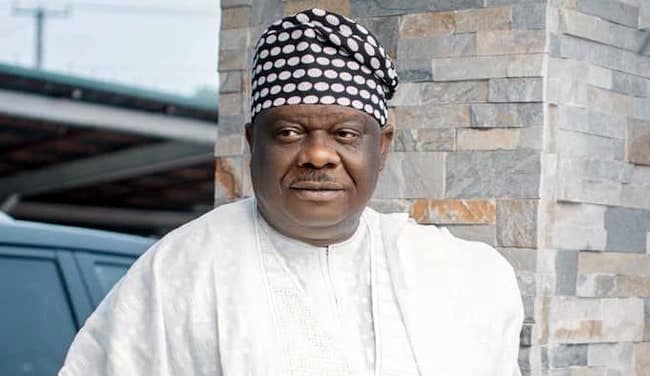Nigeria News
How EFCC Can Arrest Yahaya Bello – Former AGF, Aondoakaa

A former Attorney General of the Federation (AGF), Michael Aondoakaa, has urged the Economic and Financial Crimes Commission (EFCC) to follow the court order in the arrest of the former Governor of Kogi State, Yahaya Bello.
Naija News reports that Aondoakaa, during an interview with Arise TV on Thursday, faulted the EFCC for going against the Kogi State High Court’s order, stopping it from arresting Yahaya Bello.
According to Aondoakaa, the Kogi High Court’s judgement was a ‘win-win situation’ for both parties and the EFCC must not arrest Bello before he is prosecuted.
The former AGF noted that the agency cannot arrest again once charges have been filed in court.
He further explained that if Bello refuses to appear before the court after a summon, the same court will issue a bench warrant, and the anti-graft agency will arrest him.
He said: “The judgement said yes I have granted you (Bello) fundamental human rights before the court at the Federal High Court instituted against you, filed 2022 before Justice Omotoshu, you should not be arrested. You should not be detained.
“Since the matter is in court, the court should serve you summons to appear. It’s there in the ruling. It is for the court to serve summons, and it said the summons can be sent by DHL, so it’s no longer for the EFCC to get him arrested.
“So, I think the EFCC should do the right thing, afterall the current leadership seems to be following the law. He’s a lawyer, he’ll do the right thing.
“The moment the bench warrant is issued for failure to answer the charges against him which are already before the court, then the agency can go to arrest based on the bench warrant.
“So I’m thinking the wise thing to do in this matter is to follow the order of the court… I don’t even see it as necessary to appeal the order because I see the order being well balanced.
“Or I think, after the confusion, the judge in his wisdom clarified this confusion and I believe EFCC will read the ruling which was delivered on the 17th April and clarified.”




